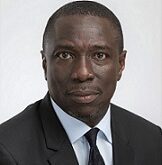The new Global Education Monitoring, GEM, as reported by UNESCO, has said that Nigeria, on current trends of global education, will achieve universal primary education in 2070, universal lower secondary education in 2080 and universal upper secondary education in the next century. ‘’On current trends, universal primary education in sub-Saharan Africa will be achieved in 2080; universal lower secondary completion in 2089; and universal upper secondary completion in 2099. This would leave the region 70 years late for the 2030 SDG deadline. Nigeria, on current trends, will achieve universal primary education in 2070, universal lower secondary education 2080 and universal upper secondary education in the next century.’’ It said that the statistics should urge countries to propel progress towards all global goals outlined in the new 2030 Agenda for Sustainable Development, SDGs, adding, ‘’education needs a major transformation to fulfill that potential and meet the current challenges facing humanity and the planet.” The report on Education for People and Planet, according to UNESCO, shows the need for education systems to step up attention to environmental concerns. While in the majority of countries, education is the best indicator of climate change awareness, half of the countries’ curricula worldwide do not explicitly mention climate change in their content. Despite being one of the regions most affected by the effects of environmental change, sub-Saharan Africa has far fewer mentions of sustainable development in its curricula in comparison with Latin America, Europe and North America. “A fundamental change is needed in the way we think about education’s role in global development, because it has a catalytic impact on the well-being of individuals and the future of our planet,” said UNESCO’s Director-General, Irina Bokova. She said: “Now, more than ever, education has a responsibility to be in gear with 21st century challenges and aspirations, and foster the right type of values and skills that will lead to sustainable and inclusive growth, and peaceful living together.” It further said that education systems must take care to protect minority cultures and their associated languages, which contain vital information about the functioning of ecosystems. But the Report shows 40% of the global population are taught in a language they don’t understand. Sub-Saharan African houses the most countries with the highest degree of linguistic diversity. Education systems need to ensure they are giving people vital skills and knowledge that can support the transition to greener industries, and find new solutions to environmental problems. This also requires education, to continue beyond the school walls, in communities and the workplace throughout adulthood. Yet only 6% of adults in the poorest countries have ever attended literacy programmes. In Nigeria, less than 10% of the poorest rural females can read, “If we want a greener planet, and sustainable futures for all, we must ask more from our education systems than just a transfer of knowledge. We need our schools and lifelong learning programmes to focus on economic, environmental and social perspectives that help nurture empowered, critical, mindful and competent citizens,” said Aaron Benavot, Director of the GEM Report. It said: ‘’There is also an urgent need for education systems to impart higher skills aligned with the needs of growing economies, where job skill sets are fast changing, many being automated. On current trends, by 2020, there will be 45 million too few workers with tertiary education relative to demand. Investing in higher education is particularly crucial for growth in sub-Saharan Africa: increasing tertiary attainment by one year on average would increase its long-term GDP level by 16%. Yet, in 2014, only 8% were enrolled in tertiary education in the region, far below the second-lowest regional average, that of South and West Asia (23%), and the global average (34%). In Nigeria, only 6% were enrolled in tertiary education in 2014. ‘’Inequality in education, interacting with wider disparities, heightens the risk of violence and conflict. Across 22 countries in sub-Saharan Africa, regions that have very low average education had a 50% chance of experiencing conflict within 21 years. In Sierra Leone, young people who had no education were nine times as likely to join rebel groups as those with at least secondary education. In Nigeria, inequalities are high: the richest males have over 12 years more education in their name than the poorest females. The Report calls on governments to start taking inequalities seriously, tracking them by collecting information directly from families. The Report emphasizes that the new global development agenda calls for education ministers and other education actors to work in collaboration with other sectors. It lists various benefits that could come from this way of working, including: -Educating mothers to lower secondary education in sub-Saharan Africa by 2030 could prevent 3.5 million child deaths between 2050-60. -Health interventions could be delivered through schools: by one estimation, delivering simple treatments such as micro nutrient pills through schools is one tenth of the cost of doing it through mobile health units. -Farmer field schools could help increase crop yields by 12%, leading to sustainable increases in food production. Four years more in school in Nigeria reduced fertility rates by one birth per young girl.’’
Check Also
NYCN: Alausa, Oyetola, NSDC DG task Youths on nation building
Emma Sunday The Minister of Education, Dr. Tunji Alausa and the Minister of Marine and …
 PH Mundial – Port Harcourt Online Newspaper News Across The Region
PH Mundial – Port Harcourt Online Newspaper News Across The Region



